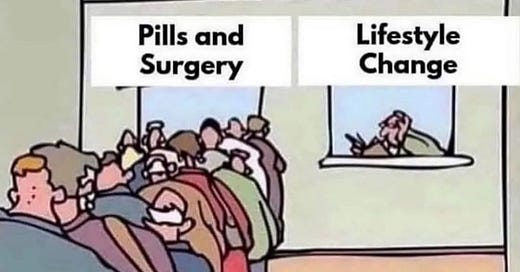UK named the sick man of Europe
Our sickness model of health isn't working, sound the klaxon, the policy makers have woken up to reality.
A recent report by the Commission for Health and Prosperity stated that the UK was now the ‘sick man of Europe’, a phrase usually used to describe countries going through severe economic turmoil or social unrest. Except the Commission meant it more literally, bluntly stating that the nation’s health challenges had reached historic proportions. Healthy …




